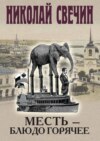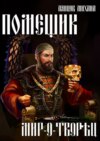Читать книгу: «Flagg's The Far West, 1836-1837, part 2; and De Smet's Letters and Sketches, 1841-1842», страница 16
I have the honor to beRev. and dear Father Provincial,Your devoted servant and son,P. J. De Smet, S.J.
LETTER XII
St. Marie, Dec. 30th, 1841.
Reverend Father:
I have given you the happy and consoling result of my journey in November. Before the close of the year I have yet to make you acquainted with what has passed during my absence, and since my return, among the Flat Heads; all goes to prove what I have advanced in my preceding letters.
The Rev. Fathers Mengarini and Point were not idle during my absence. The following will give you some idea of the state of affairs on my return, both in regard to material and spiritual matters, as well as the practices and usages established, which could not but tend to strengthen, more and more, our good neophytes.
The plan mentioned in my letters, and unanimously approved, and which we were urged to carry into execution, was, to commence with what appeared to be the most urgent. We enclosed the field destined to become God's portion of the settlement. We started the buildings intended to be hereafter dependencies of the farm, but serving temporarily for a church and residence, on account of the approach of winter, and our wish to unite the whole colony. These works were indispensable, and were carried on with such spirit that in the space of a month the new buildings could shelter from four to five hundred souls.
The Flat Heads, assisting us with their whole heart and strength, had, in a short time, cut from two to three thousand stakes; and the three brothers, with no other tools than the axe, saw and auger, constructed a chapel with pediment, colonade and gallery, balustrade, choir, seats, &c. by St. Martin's day; when they assembled in the little chapel all the catechumens, and continued the instructions which were to end on the third of December, the day fixed for their baptism. In the interval between these two remarkable epochs, there was, on each day, one instruction more than usual. This last instruction, intended chiefly for grown persons, was given at 8 o'clock in the evening, and lasted about an hour and a quarter. These good savages, whose ears and hearts are alike open when the word of God is addressed to them, appeared still better disposed in the evening; the silence being unbroken by the cries of infants or children. Our heavenly Father so graciously heard their prayers, that on St. Francis Xavier's day the good Fathers had the consolation of baptising two hundred and two adults.
So many souls wrested from the demons was more than enough to excite their rage, – seeds of distrust, hindrances occasioned by the best intentioned, the sickness of the interpreter and sexton, at the very moment their assistance was most required; a kind of hurricane, which took place the evening before the baptism, and which overturned three lodges in the camp, the trees torn from their roots, and every thing in appearance about to be uprooted, even to the foundations of the church – the organ unintentionally broken by the savages, on the eve of being applied to so beautiful a purpose – all seemed to conspire against them; but the day for baptism arrives, and every cloud disappears.
The Fathers had intended to solemnize the marriages of the husbands and wives on the same day as their baptism. They had even announced that the ceremony would take place after baptism; but the sacred rite having occupied a much longer time than they supposed, on account of the necessity of interpreting all that was said, they were obliged to defer this sacrament until the next day, trusting to God and the new Christians, for the preservation of their baptismal innocence.
As our former Missionaries have left nothing in writing on the conduct we should observe with regard to marriage, it may, perhaps, be useful to relate here what has been our course, in order that our conduct may be rectified if it has not been judicious.
We hold the principle, that, generally speaking, there are no valid marriages among the savages of these countries; and for this reason; we have not found one, even among the best disposed, who, after marriage had been contracted in their own fashion, did not believe himself justified in sending away his first wife, whenever he thought fit, and taking another. Many even have several wives in the same lodge. It is, however, true, that many when entering the marriage state, promise that nothing but death will ever separate them; that they will never give their hand to another. But what impassioned man or woman has not said as much? Can we infer from this that the contract is valid, when it is universally received, that even after such promises they have not the less right to do as they please, when they become disgusted with each other? We are then agreed on this principle, that among them, even to the present time, there has been no marriage, because they have never known well in what its essence and obligation consisted. To adopt an opposite view would be to involve oneself in a labyrinth of difficulties, from which it would be very difficult to escape. This was, if I am not mistaken, the conduct of St. Francis Xavier in the Indies, since it is said in his Life, that he praised before the married those whom he supposed to be dearest to them, that they might be more easily induced to keep to one alone. Secondly, supposing then that there were material faults in their marriages, the necessity of a renewal was not spoken of but for the time which followed baptism, and this took place the day following that happy occasion.
After the Fathers had gained the necessary information respecting the degrees of relationship, and had given the necessary dispensations, the marriage ceremony, preceded by a short instruction, was performed, and contributed greatly to give the people a high idea of our holy religion.
The twenty-four marriages then contracted presented that mixture of simplicity, of respectful affection, and profound joy, which are the sure indications of a good conscience. There were among the couples, good old men and women; but their presence only rendered the ceremony more respectable in the eyes of those assembled; for among the Flat Heads all that relates to religion is sacred; unhappy he who would so express himself before them, as to lead them to believe that he thought otherwise. They left the chapel, their hearts filled with sentiments purified by that grace which constitutes the charm of every state of life, and especially of those in wedlock.
The only thing that appeared strange to them was, when the Fathers spoke of taking the names of witnesses; but when they were told that this was only done because the church so ordained, to give more authority and dignity to the marriage contract, they no longer saw in it any thing but what was reasonable, and the question was, who should be witness for the others?
The same astonishment was manifested with regard to god-fathers. The interpreter had translated the word god-father, a term which is not in their language, by second father. The poor savages not knowing what this meant, or what consequences this title would imply, were not eager to make a choice. To be a god-father moreover offered no great attraction. As soon as we made them understand it, their difficulties vanished, and the more easily; for not to multiply spiritual affinities, a god-father only was given to the men, and a god-mother to the women; and as to the obligations attached to the honour of being sponsors, they were much less here than elsewhere, the Black Gowns promising to take upon themselves the greatest part of the burden. For the first baptisms our choice of sponsors was very limited; only thirteen grown persons were qualified to act in this capacity, – but the most aged persons being baptised before the others, they, without laying aside the lighted candle, (the symbol of faith) were chosen for the second division; and so in like manner with the rest.
The day preceding the baptism, the Fathers, on account of their labors, were only able to collect the colony twice; besides, F. Mengarini was indisposed. In the evening, however, he assembled the people, and great was their astonishment on beholding the decorations of the chapel. Some days previously the Fathers had engaged all who were willing, to make matts of rushes or straws. All the women, girls and children, assembled eagerly for this good work, so that they had enough to cover the floor and ceiling, and hang round the walls. These matts, ornamented with festoons of green, made a pretty drapery around the altar. On a canopy was inscribed the holy name of Jesus. Among the ornaments they placed a picture of the Blessed Virgin over the tabernacle; on the door of the tabernacle a representation of the heart of Jesus. The pictures of the way of the Cross, in red frames; the lights, the silence of night, the approach of the important day, the calm after the hurricane, which had burst on them only a few moments before – all these circumstances united, had, with the grace of God, so well disposed the minds and hearts of our Indians, that it would have been scarcely possible to find on earth an assembly of savages more resembling a company of saints. This was the beautiful bouquet which the Fathers were permitted to present to Saint Francis Xavier. The next day they were engaged from eight o'clock in the morning until half past ten at night, in the church, excepting only one hour and a half, which they gave to repose. The following was the order followed. First, they baptized the chiefs and married men. These were chosen as god-fathers for the young men and little boys; then the married women, whose husbands were living with them; afterwards the widows and wives who had been cast off; and, lastly, the young women and girls.
It was gratifying to hear with what intelligence these good savages replied to all the questions addressed to them, and to see them praying at the moment of receiving baptism. At the end, each received a taper whose blended light beautifully illuminated our humble chapel.
But let us come to something still more edifying. I shall not speak of their assiduous attendance at the instructions, – of their eagerness to hear our words, – of the evident profit they received from them; all this is common in the course of a mission; but rarely do we witness the heroic sacrifices which these Indians have made. Many, who had two wives, have retained her whose children were most numerous, and with all possible respect dismissed the other. One evening, a savage came to seek the Fathers at the lodge, which was filled with Indians, and unabashed by any merely human consideration, asked what he should do in his present circumstances? On the instant he acted according to the instructions given him; he dismissed his youngest wife, giving her what he would have wished another to give to his sister, if in the same situation, and was re-united to his first wife, whom he had forsaken. After an instruction, a young woman, asking to speak, said that "she desired very much to receive baptism, but that she had been so wicked she dared not make the request." Each one would have made a public confession. A great number of young mothers, married according to the mode of the savages, but abandoned by their husbands, who were of some other tribe, renounced them most willingly, to have the happiness of being baptised.
The ordinary regulations observed in the village are as follows: when the Angelus rings, the Indians rise from sleep; half an hour after, the morning prayers are said in common; all assist at Mass and at the instruction. A second instruction is given at evening, towards sun set, and lasts about an hour and a quarter. At two o'clock in the afternoon we have the regular catechism for the children, at which grown persons may assist if they think proper. The children are formed into two divisions: the first is composed exclusively of those who know the first prayers; the second of the smaller children. One of the Fathers each morning visits the sick, to furnish them with medicines, and give them such assistance as their wants may require.
We have adopted the system of instruction and bestowing rewards, in usage in the schools of the brothers of the Christian doctrine. During catechism, which lasts about an hour, we have recitations and explanations, intermingled with canticles. Every day, for each good answer, tickets of approbation are given; one or more, according to the difficulty of the question proposed. Experience has proved that these tickets given at once, are less embarrassing than when we mark their names on a list; the former plan takes less time, and interests the children more, rendering them, besides, more assiduous and careful. These tickets serve, at the same time, as certificates of attendance at catechism, and as tokens of intelligence and good will, they please the parent not less than their children. The former are incited to make their children repeat what has been said at catechism, to render them capable of answering better the following day; and also with a desire of improving themselves. The wish to see their children distinguish themselves, has attracted almost the whole colony to catechism: none of the chiefs who have children fail to be there; and there is not less emulation among the parents than among the children themselves. A still greater value is attached to the tickets, from the exactitude and justice with which the deserving are rewarded. They who have obtained good tickets during the week, are rewarded on Sunday with crosses, medals, or ribbons, publicly distributed. On the first Sunday of every month they distribute to those who have received the most good tickets in the course of the month, medals or pictures, which become their private property. These pictures, preserved with care, are great stimulants, not only to the study of their catechism but also to the practice of piety. They are monuments of victory, examples of virtue, exhortations to piety, and models of perfection. Their rarity, and the efforts necessary to obtain them, also enhance their worth. As we desire to inspire the savages, who are naturally inclined to idleness, with a love for work, it has been judged suitable to reward their little efforts in the same manner as we recompense their improvement in, and knowledge of their catechism.
To maintain order, and promote emulation among them, the catechism children are divided into seven or eight sections, of six each; the boys on one side, the girls on the other. At the head of each section there is a chief, who must assist the children placed under him to learn their catechism; that thus every child may indulge the hope of meriting a reward at the end of the week or month. They are so divided that the competitors, to the number of five or six in each section, may be of nearly equal capacity.
Father Point, who was, immediately after Christmas, to accompany the assembled camps of Flat Heads, Pends-d'oreilles, Nez-perces, &c. prepared for his new campaign by a retreat of eight days. Twenty-four marriages, as I have already said, had been celebrated during my absence, and two hundred and two adults, with little boys and girls from eight to fourteen years of age, had been baptised. There were still, thirty-four couples, who awaited my return, to receive the sacraments of baptism and marriage, or to renew their marriage vows. The Nez-perces had not yet presented their children for baptism. There was an old chief of the Black Feet nation, in the camp, with his son and his little family, five in all, who had been hitherto very assiduous in their attendance at prayers and catechism. The day succeeding my arrival I commenced giving three instructions daily, besides the catechism, which was taught by the other Fathers. They profited so well, that with the grace of God, a hundred and fifteen Flat Heads, with three chiefs at their head, thirty Nez-perces with their chief, and the Black Foot chief and his family, presented themselves at the baptismal font on Christmas day. I began my Masses at seven o'clock in the morning; at five o'clock, P. M. I still found myself in the chapel: The heart can conceive, but the tongue cannot express the emotions which such a consoling spectacle may well awaken. The following day I celebrated a solemn Mass of Thanksgiving for the signal favours with which our Lord had deigned to visit his people. From six to seven hundred new Christians, with bands of little children, baptised in the past year, – all assembled in a poor little chapel, covered with rushes – in the midst of a desert, where but lately, the name of God was scarcely known; offering to the Creator their regenerated hearts, protesting that they would persevere in His holy service even to death, was an offering, without doubt, most agreeable to God, and which, we trust, will draw down the dews of heaven upon the Flat Head nation and the neighbouring tribes.
On the 29th the large camp, accompanied by the Fathers, left us for the great buffalo hunt, and joined the Pends-d'oreilles, who awaited them at two day's journey hence; there will be above two hundred lodges. I am filled with hope for the success and fresh victories, with which, I trust, God will deign to reward the zeal of his servant. In the mean time we occupy ourselves (Father Mengarini and myself) in translating the catechism into the Flat Head tongue; and in preparing one hundred and fifty persons for their first communion.
Our good brothers and the Canadians are engaged at the same time in erecting around our establishment a strong palisade, fortified with bastions, to shelter us from the incursions of the Black Feet, whom we daily expect to visit us. Our confidence in God is not weakened; we take the precautions which prudence dictates, and remain without fear at our post.
A young Sinpoil has just arrived in our camp, and these are his words: "I am a Sinpoil, my nation is compassionate. I have been sent to hear your words, and learn the prayer you teach the Flat Heads. The Sinpoils desire also to know it, and to imitate their example."240 This young man proposes to pass the winter in our camp, and return in the spring to his own nation, to sow among them the seeds of the gospel.
The whole Flat Head nation converted – four hundred Kalispels baptised – eighty Nez-perces, several Cœurs-d'aliene, many Kooetenays, Black Feet, Serpents and Banacs, – the Sinpoils, the Chaudieres,241 who open their arms to us, and eagerly ask for Fathers to instruct them; the earnest demands from Fort Vancouver on the part of the Governor,242 and of the Rev. Mr. Blanchette, assuring us of the good desires and dispositions of a great number of nations, ready to receive the gospel, – in a word, a vast country, which only awaits the arrival of true ministers of God, to rally round the standard of the Cross – behold the beautiful bouquet, Rev. Father, which we have the happiness of presenting you at the close of 1841.243 It is at the foot of the crucifix that you are accustomed to ask counsel of heaven for the welfare of the nations entrusted to your children. Our number is very far from sufficient for the pressing and real wants of this people. The Protestants are on the qui vive. Send us then some Fathers and Brothers to assist us, and thousands of souls will bless you at the throne of God for all eternity.
Recommending myself to your holy prayers,
I have the honour to be, with the most profoundrespect and esteem,Rev. Father, Yours, &c.P. J. De Smet, S.J.
BOOK II
NARRATIVE OF A YEAR'S RESIDENCE AMONG THE INDIAN TRIBES OF THE ROCKY MOUNTAINS
Madison Forks,244 15th August, 1842.
Rev. and dear Father:
After a journey of four months and a half across an ocean of prairies and mountains, where we met many an obstacle, we arrived this day a year ago, under the auspices of the Queen of Heaven, at one of the Forts of the honorable company of Hudson Bay, called Fort Hall. Mr. Ermantiger, the estimable commander of this Fort, received us in the most friendly manner, and loaded us with favours. At this place we found the vanguard of our dear neophytes awaiting us. How joyful and happy was this meeting. What had they not done to obtain Black Gowns to visit them? Four times had their deputations crossed the Western desert – eight of their people had perished on the road, three from sickness, and five fell victims to the Scioux tribe. Twice from the Bitter Root river almost all their people had transported themselves to the Green river, a distance of more than five hundred miles from their usual encampment. In fine, those who then joined us had at the first news of our approach again traversed the half of that space to meet us; nor could they, on first seeing us, express their feelings but by their silence. Very soon, however, they gave vent to the grateful sentiments of their hearts, in such a manner as to astonish us. "I am very ignorant and wicked," exclaimed the chief Wistelpo to his companions, "nevertheless I am grateful to the Great Spirit for all he has done for us." Detailing all the benefits he had received he terminated his discourse in the following manner: "Yes, my dear friends, my heart is filled with contentment, notwithstanding its wickedness. I do not despair of the goodness of God, I only wish for life to employ it in prayer; never will I give up praying; I will continue to pray until my death, and when that hour comes I will throw myself into the arms of the Master of Life. If it be His will that I should be lost I will submit to his decree. Should he wish to save me I will bless him forever. Once more I repeat, my heart is happy. What can we do to prove to our Fathers that we love them." – Here the chief made some practical reflections.
They informed us that since I left them in 1840 their brothers had always remained in the same dispositions; that according to the plan I had laid out for them, all the people met twice every day, and three times on Sundays, to recite in common the prayers I had taught them. They also told us that the chest containing the sacred ornaments and vases, which we had left in their charge, was carried about as the ark of salvation, wherever they went; that five or six children, dying after having received the sacrament of baptism, had taken their flight to heaven; that a young warrior, the day after his baptism, had died from the effects of a wound, which, without the aid of a miracle, would have carried him off long before; and finally, that a young child, finding herself at the point of death, solicited baptism with the greatest earnestness, and after having received this favour from the hands of Peter, an Iroquois, she repeated three times to the witnesses of her happiness: "pray for me – pray for me – pray for me;" then she prayed herself and sang canticles with a stronger voice than any of the others, and upon drawing her last breath, she exclaimed, pointing towards heaven: "Oh! what a beautiful sight! I behold Mary, my mother, happiness does not belong to earth, in heaven alone must you seek it. Listen to what the Black Gowns tell you, because they profess the truth;" and immediately afterwards expired.
We left Fort Hall on the 19th of the month, conducted by our new guides, who were not long in giving us striking proof of their devotion towards us. At the crossing of a very rapid river, called the Lewis' Fork or Snake River, from the savages who people its borders, one of our brothers, not being able to guide the mules of his cart, was dragged into a place so deep that his whole equipage was plunged under the water; immediately the good savages threw themselves into the river, raised the cart out of the water, employed their hands and feet so usefully, that only three mules were drowned and some bags of provisions lost.
The 29th we met near the source of the Missouri, called the Beaver Head, a detachment of Flat Heads, having as their leader Ensyla, called the Little Chief, who has since received in baptism the name of Michael, on account of his fidelity and courage. A few days previous, a party of Indians having been discovered on the adjacent heights, a cry was raised of "the Black Feet! the Black Feet!" Instantly the little camp put itself on the defensive. Two of the bravest Flat Heads, lifting up their muskets in the air, started off at full gallop to reconnoitre the enemy. Already they had disappeared from our view, leaving us somewhat anxious, but they soon returned, at the head of about ten strangers. They were not the Black Feet, but a party of the Banac tribe, a species of men half inimical and half friendly to the Flat Heads, who for that very reason, as we shall see later, were more to be feared than open enemies. When Michael joined us, the camp of these people was already united with ours. Their chief and Michael knew each other but too well, from having once been engaged in an affair in which Michael, finding himself shamefully betrayed and attacked by a whole Banac village, had only been able to save himself and six men, who accompanied him, by killing the brother of the Banac chief, with eight of his people. They nevertheless shook hands with each other, and separated the next day, without appearing to entertain any unpleasant recollections. I had a conversation with the Banac chief on the subject of prayer. He listened attentively to what I told him, and promised to do amongst his people what the Flat Heads did amongst theirs. The 30th, after having wound through a mountain pass, to which we gave the name of the Fathers' Defile, we advanced as far as a large plain, on the western verge of which the Flat Heads were encamped. As we drew near, runners approached us constantly. Already, Stiettiet Loodzo, surnamed the bravest of the brave, and distinguished from the others by a large red ribbon, had presented himself. Soon after, we perceived at a distance another savage, of tall stature, hastening towards us with rapid strides. At the same time, many cried out – "Paul," "Paul;" and indeed it was Paul, surnamed "Big Face," the great chief of the nation; Paul, who, owing to his virtue and his great age, had been baptized the preceding year – Paul, whom they thought absent, but who had just arrived, as though by God's special permission, that he might have the satisfaction of presenting us himself to his people. At sun-set we were in the midst of a most affecting scene. The Missionaries were surrounded by their neophytes – men, women, young people, and children in their mothers' arms, all anxious to be among the first to shake hands with us. Every heart was moved. That evening was certainly beautiful. On the feast of the holy name of Mary, the whole camp renewed the consecration of themselves to their future Patroness, which had been previously made by the vanguard of the first settlement.
About the time the Church celebrates the feast of Mary's pure heart, it seemed as though the God of the Christians wished to give to her new children the consolation of seeing the principal eras in their lives coincide, and in some manner become identified with those happy days consecrated especially to her honor. It was on the feast which the Church celebrates in memory of her triumph, that we first met with the Flat Heads; it will be on the 24th of September, also one of the festivals, that we shall arrive on the borders of our little Paraguay, and on the feast of the Holy Rosary we shall select a beautiful spot for our first settlement, and call it by the holy name of Mary. It is again remarkable that the nomination took place on another feast called the Patrocinium, or Patronage of the Blessed Virgin; and thus, Mary, chosen patroness of the settlement, was hailed for the first time on this spot with the angelical salutation, accompanied by the ringing of bells. It was a great consolation for us to speak of her goodness, in the presence of the representatives of twenty-six different nations. I forgot to mention that on the day we took possession of the Blessed Mary's new demesne, we set up a large cross in the middle of the camp, a circumstance rendered more striking, from having, as they assured me, been predicted by the young girl, called Mary, of whom I spoke to you before. How much I wished that all those who take a sincere interest in the progress of our holy religion, could have been present. How their hearts would have glowed within them on beholding all the good Flat Heads, from the great chief to the smallest child, piously coming up to press their lips to the wood which was the instrument of the world's salvation, and on their bended knees taking the solemn promise of dying a thousand times rather than abandon prayer, (religion.) I started the 28th October for Fort Colville, which is situated on the Columbia river, to procure provisions.245 Ours had become so scanty, and we entertained such slight hopes of obtaining them, that we had already thought of converting into fishermen the carpenters of our settlement. In case of their not being successful, and thereby unable to supply our wants, we intended accompanying the savages on their hunting expeditions. Our only building as yet was a wooden house, without a roof, and the winter had already set in. We began by recommending our wants to God, and with God's assistance we found ourselves, on St. Martin's day, in possession of a temporary chapel, large enough to contain all the colony, with about one hundred of the Pierced Nose tribe, whom curiosity had attracted to the neighborhood. Since that period they have been so careful in avoiding sin, so exact in attending our instructions, and the fruit of the divine word has been so visible in our settlement, that on the 3d of December two hundred and two catechumens were ranged in our chapel, waiting for baptism. This was too beautiful an offering to St. Francis Xavier, apostle of the Indians, not to excite the fury of man's great enemy. – Accordingly, for a few days previously we encountered multiplied trials. To speak only of the most visible, the prefect, interpreter and sexton fell sick. The very eve of the great day the environs were laid waste by a sort of hurricane – the church windows were broken, large trees were rooted up, and three huts were thrown down; but these obstacles, far from prejudicing the triumph of religion, served only to render it still more striking.


























